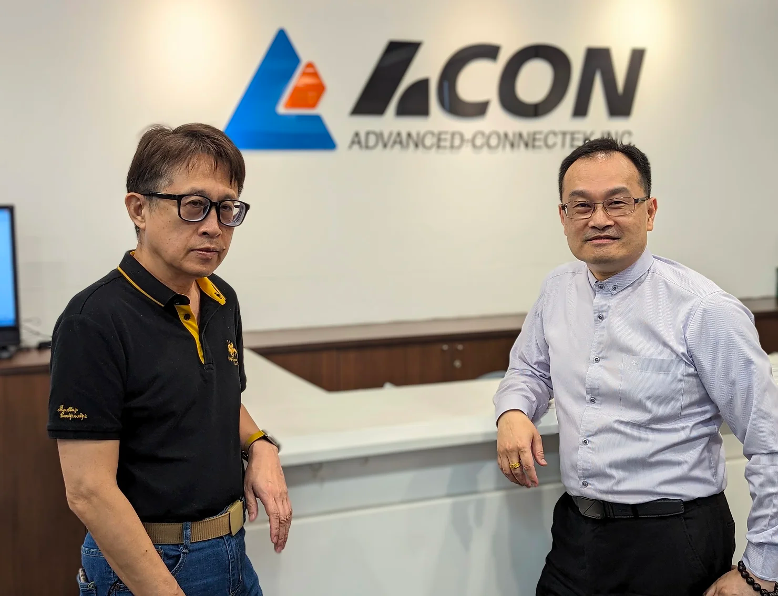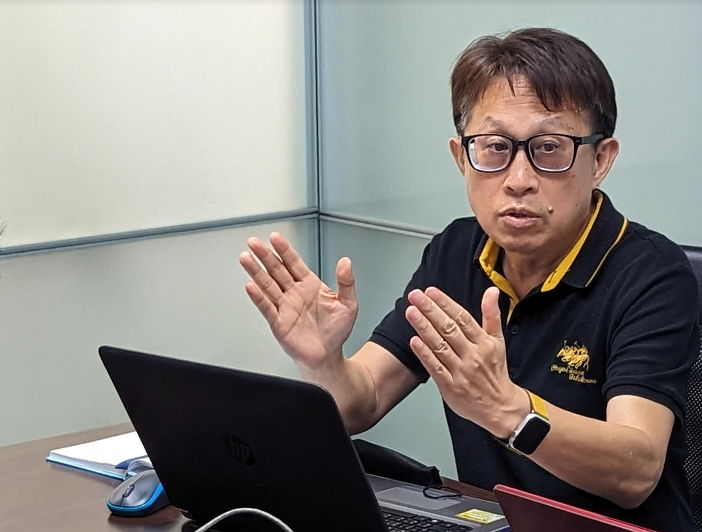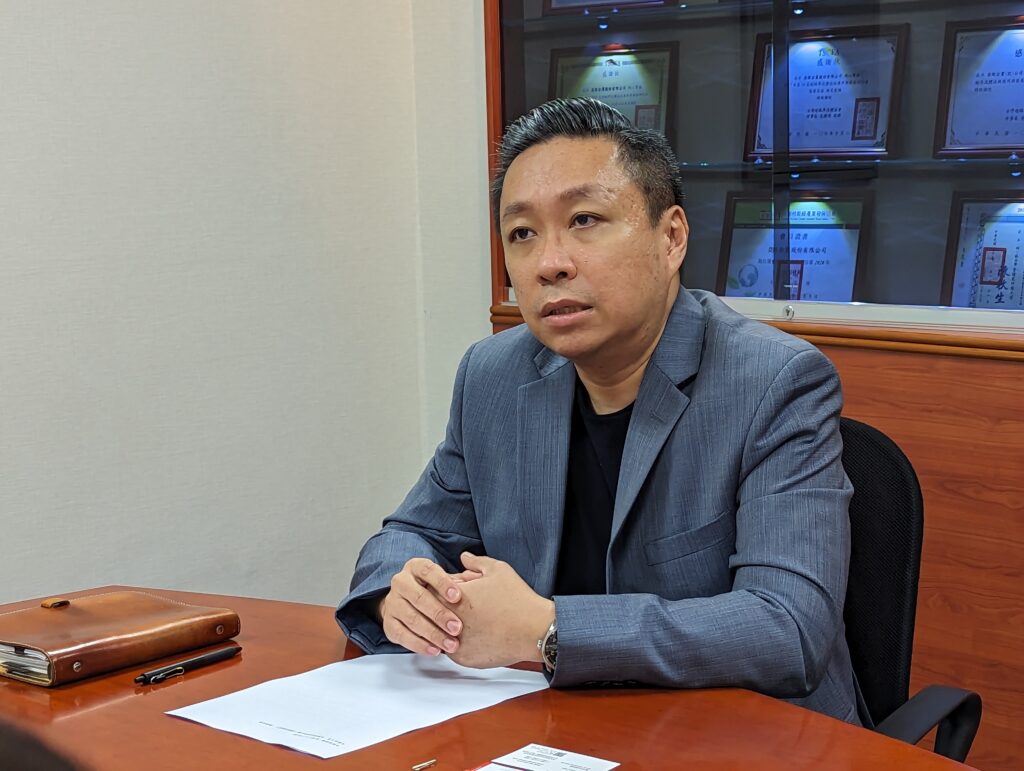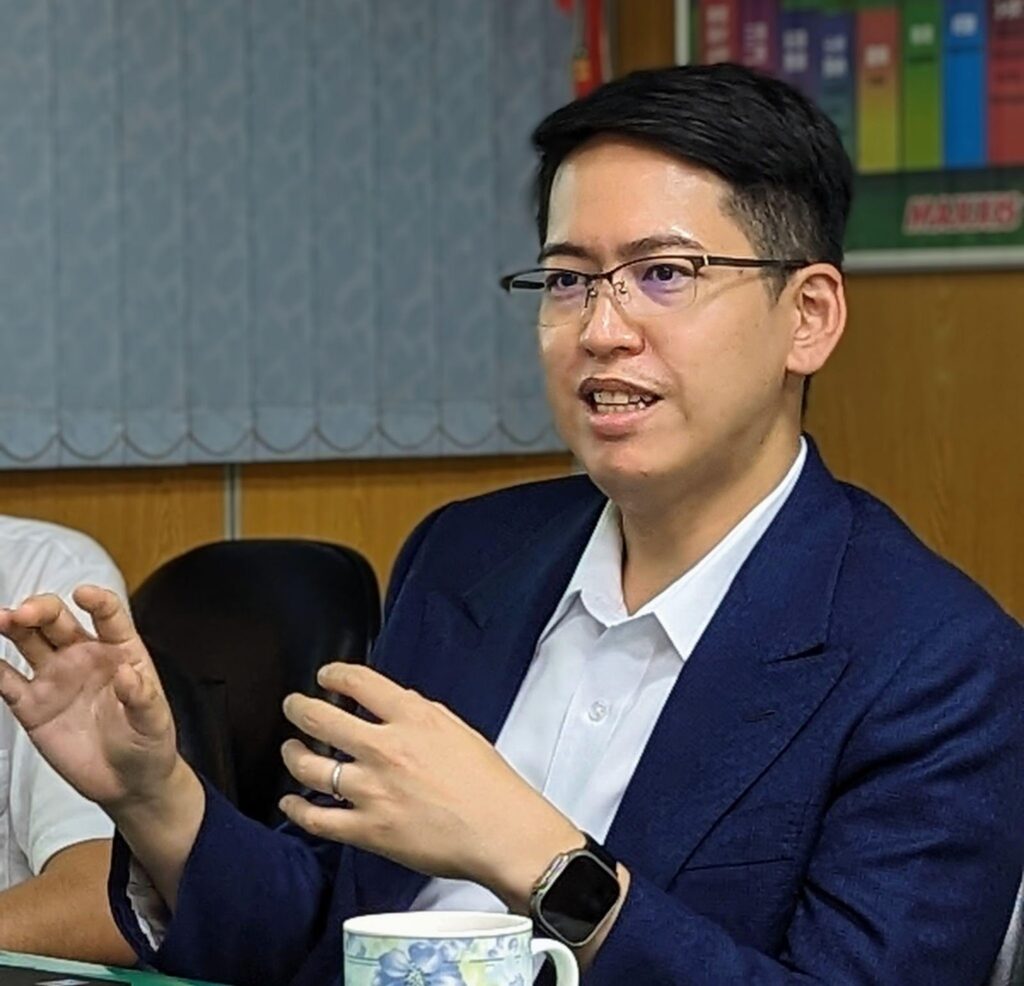
As the artificial intelligence (AI) wave rages on, other than overseas technology leaders pumping in investments, more and more enterprises in Taiwan have followed the trend, bringing changes and new opportunities to Taiwan’s multitude of industries and playing a pivotal role in unleashing the next wave of industrial upgrading. ACON, which has been established for over 36 years and specializes in the design, manufacturing, and sales of IT, digital home appliances and handheld electronic components, has also proactively introduced reformative AI initiatives in recent years and established the strategy of the first year of digital transformation last year. Grand Kuo, Senior Special Assistant to ACON President’s Staff Offic, pointed out that everyone in the Group must attend the digital transformation channel course every Thursday morning from 11am to 12pm to enable the enterprise to keep up with industry trends.
In the past, electronic component businesses such as connectors depended on Taiwan’s strongest customer base in the telecommunications industry. In recent years, the rise of non-3C fields such as electric vehicles, green energy, smart healthcare, AIOT industry, 5G and high-speed telecommunications also saw the demand for new applications of electronic components in these fields, creating high value-added business opportunities for enterprises, many of which are the main business lines of ACON.
Deep entrenchment in digitalization, where it all started from production processes in the early years

Grand Kuo said that ACON began to introduce application program interfaces (APIs) as early as 12 years ago to improve production and optimize processes. From 2016 to 2018, industrial upgrading was carried out through automated testing and manufacturing.
In the past two years, under the leadership of General Manager Frank Chen, a Digital Transformation Committee was established so that automation can be refined through the accumulation of data, further deepening digitalization efforts and improving the efficiency and quality of the workflow holistically to the extent of establishing new business models. The Company also introduced AI applications at this stage.
In view of the success of digital transformation, Frank Chen believes that there are four key attributing factors, the first being embedding it in the organizational culture, turning digital transformation into an ideology, a habit, and integrating it into work fully. The second is whether the supervisor attaches importance to it and the level of commitment, taking on a top-down approach to, in turn, drive the entire organization. The third is to leverage internal and external resources, identify tools that can be used directly to facilitate a faster and more effective pace of promotion. The final factor being implementing digital transformation using PDCA management methodology. Each department needs to define relevant tasks, identify specific low hanging fruits and establish a positive environment through reward system and mutual learning.
Internalizing digital transformation into an innate culture
James Chan, Innovation Consultant at ACON, commented that ACON executives have always been very supportive of digital transformation, believing that new tools can drive new thinking. In the process of transformation, unlike the top-down policy of typical enterprises, ACON adopted the sandwich approach where junior talent must also spearhead digital projects, so that both high and low-ranked employees can have a common digital language. A Digital Star Transformation Competition is also held every quarter.
Dr. Chan shared one of the most memorable projects in the process – Virtual Measurement. It was precisely because of virtual measurement that an opportunity arose to achieve Digital Twin, bringing digital plants and virtual production lines into fruition to enable rapid replication of plant technologies to other plants. While precision manufacturing is reliable, such AI tool applications can greatly widen the gap with competitors.
Simple steps, five management areas of enterprise for comprehensive digitization
In the past, when driving digitization, ACON encountered challenges such as poor application of tools and difficulties in mastering statistics and software, which became the main obstacle to driving digital transformation. In the second half of 2022, ACON started collaborating with Profet AI to conduct two Profet AI AutoML workshops, starting nurturing management associates and key business talent, with the goal of equipping 1,000 digital transformation talent within 3 years.
The results of this digital transformation have been commendable. In less than a year, the company has implemented 677 digital projects, of which 470 have been implemented through the Profet AI No-code AutoML platform, accounting for more than 70%. In addition, with the assistance of Profet AI’s consultants, ACON has trained more than 240 agile digital team members, including production, marketing, human resources, R&D, and finance of the five management areas of enterprise management to achieve holistic digitalization among employees.
Jonathan Yu, General Manager of Sales at Profet AI, commented that Profet AI AutoML platform provides machine learning algorithms commonly used in the manufacturing industry, allowing users to operate online quickly. Personnel without experience or IT background can quickly get the hang of things, communicate in the same language, and complete the operation in just five steps. For ACON, on top of optimizing production, the new industrial model of introducing AI also improved management quality.
Dr. Chan remarked that the introduction of new tools in the past took time and experience to slowly refine. While high-tech automation has accelerated due to the lack of accumulation of scientific data in automation, the use of mathematical models in the past had not been easy and largely, at best, were capable of categorization. However, after introducing Profet AI’s AutoML system, the company was able to quickly attain the original goal, achieving improvements on competitiveness.
General Manager Frank Chen stressed that in order for the company to be competitive and sustainable, it needs to carry out digital transformation on a more extensive and deeper scale. In the industry, over and above numerous process changes, business models also undergo rapid transformation. Therefore, enterprises must leverage various tools comprehensively to achieve digital transformation and boost their competitiveness. ACON’s use of AI is not to go with the flow, but to aspire to do better than others.

